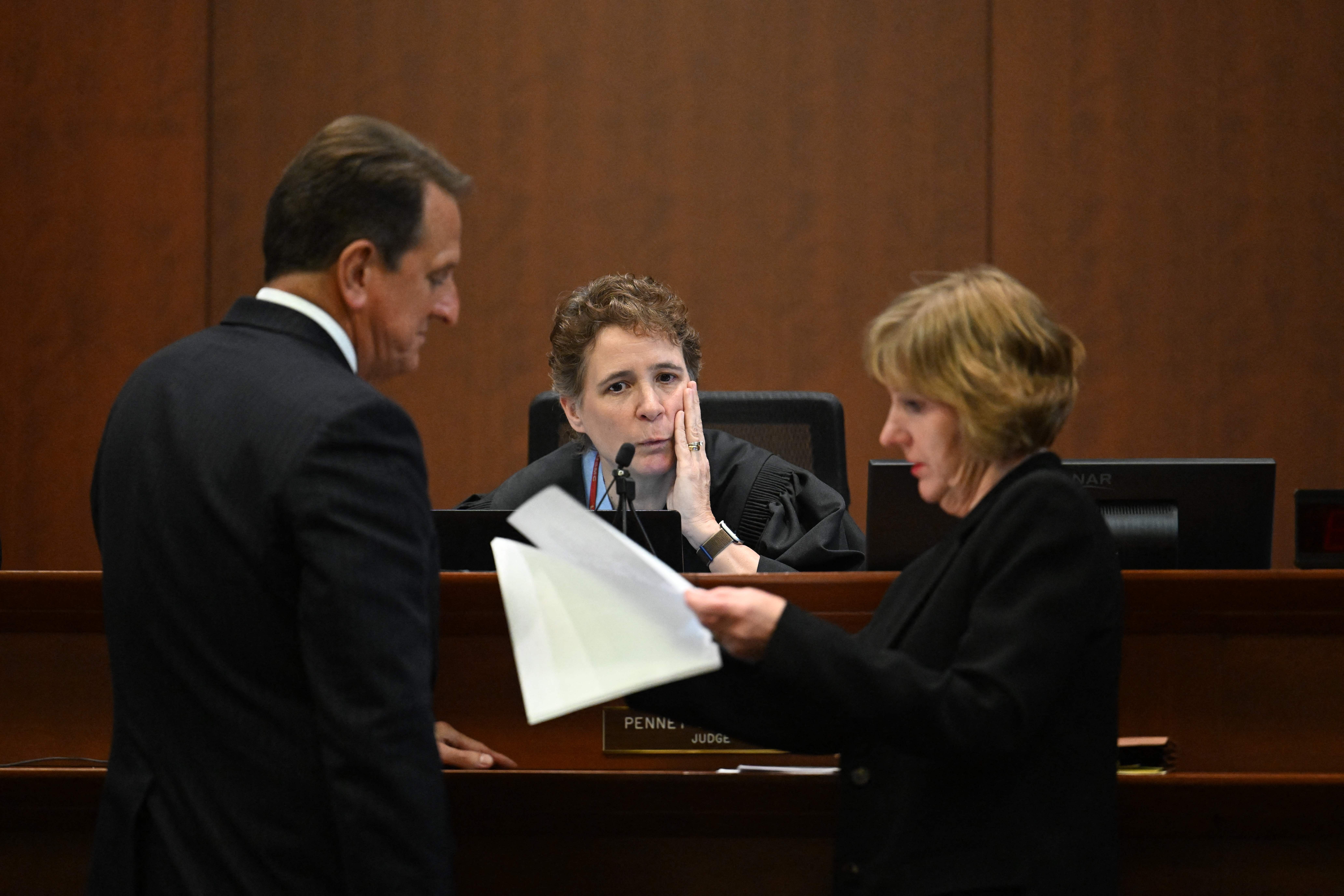What hearsay objections mean at the Depp v Heard trial
Hearsay objections have been raised frequently during testimony

Those who have followed the defamation trial opposing Johnny Depp and Amber Heard in Virginia will have become familiar with the term “hearsay”. It has been frequently brought up in objections by either party’s legal teams, prompting some questions about what hearsay is, why it’s not admissible as evidence in a court of law, and whether it might be used under special circumstances.
During witness testimony, particularly when Mr Depp and Ms Heard have taken the stand themselves, their respective attorneys have been known to interject with the words: “Objection, hearsay.” Objecting on the basis of hearsay is a way for an attorney to ask for a statement that has just been made to be dismissed as evidence.
Hearsay, according to the Federal Rules of Evidence as published by Cornell Law School, is a statement that “the declarant does not make while testifying at the current trial or hearing”, and “a party offers in evidence to prove the truth of the matter asserted in the statement.”
In other words, and as summarized by the legal company LegalZoom, hearsay is “testimony or documents quoting people who are not present in court”.
“It is not hearsay for someone to comment on something said by another witness in court,” notes the legal resource website HG.org. “But, if the statement occurs outside of court, where the judge and jury could not hear it, then it may be hearsay.”
As for the “truth of the matter” part of the legal definition, HG.org offers this example: “If John calls Sue at 2 in the afternoon from his cell phone and says ‘I just saw Paul shoot someone,’ the statement would be hearsay if offered to prove that Paul shot someone. But, if the statement is offered to prove that John made the phone call before the victim was shot, this could be used as evidence that John lied about seeing Paul shoot someone and that he may be implicated himself since he knew about it before it occurred.”

There are hearsay exceptions that make it possible to accept statements made outside of court as evidence. For example, if a statement is considered an “excited utterance”, then it might be acceptable as evidence. The reason for that rule is that, per LegalZoom, it is generally considered that “during or immediately following a criminal act, a person is not likely to have the presence of mind to lie or give false statements”.
Other exceptions exist, for example for statements that go against a person’s own interests.
A statement doesn’t have to be made orally in order to constitute hearsay, it can also be made in writing. There exists an exception here too: some documents, including business records and government records, may be admitted into evidence.
Law & Crime analyst Gene Rossi, speaking to the network in comments highlighted by TheWrap in a recent article, pointed to a judge’s discretion in sustaining or overruling hearsay objections.
“I think the judge has tremendous judicial temperament – I strongly disagree, respectfully, with a lot of her rulings,” Rossi said. “... Technically, hearsay is whatever I say – I’m on the witness stand, and I’m saying something ... outside the courtroom, that is technically hearsay, because it’s a statement outside of the courthouse.
“In my 30 years of practicing law, 99 percent of the judges did not care what I said if I’m on the stand and I’m quoting myself outside the courtroom, because I’m there to be cross-examined.”
He called Judge Penney Azcarate, who has presided over the Depp v Heard trial, a “purist” in that regard, adding: “She’s sustaining that objection, because academically, technically it is hearsay, but practically in my experience 99 percent of judges allow it, because I’m on the stand to be cross-examined.”
Bookmark popover
Removed from bookmarks